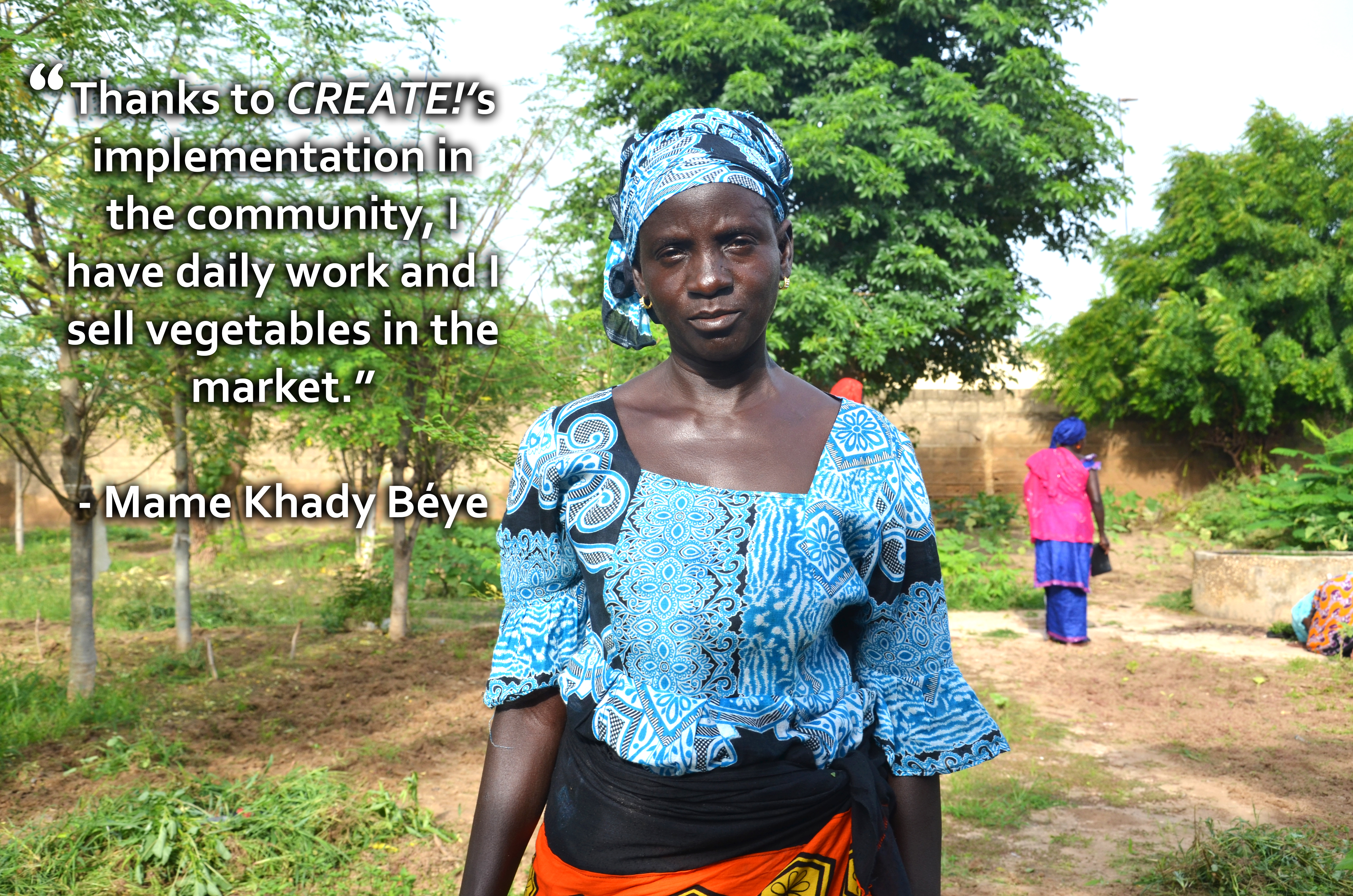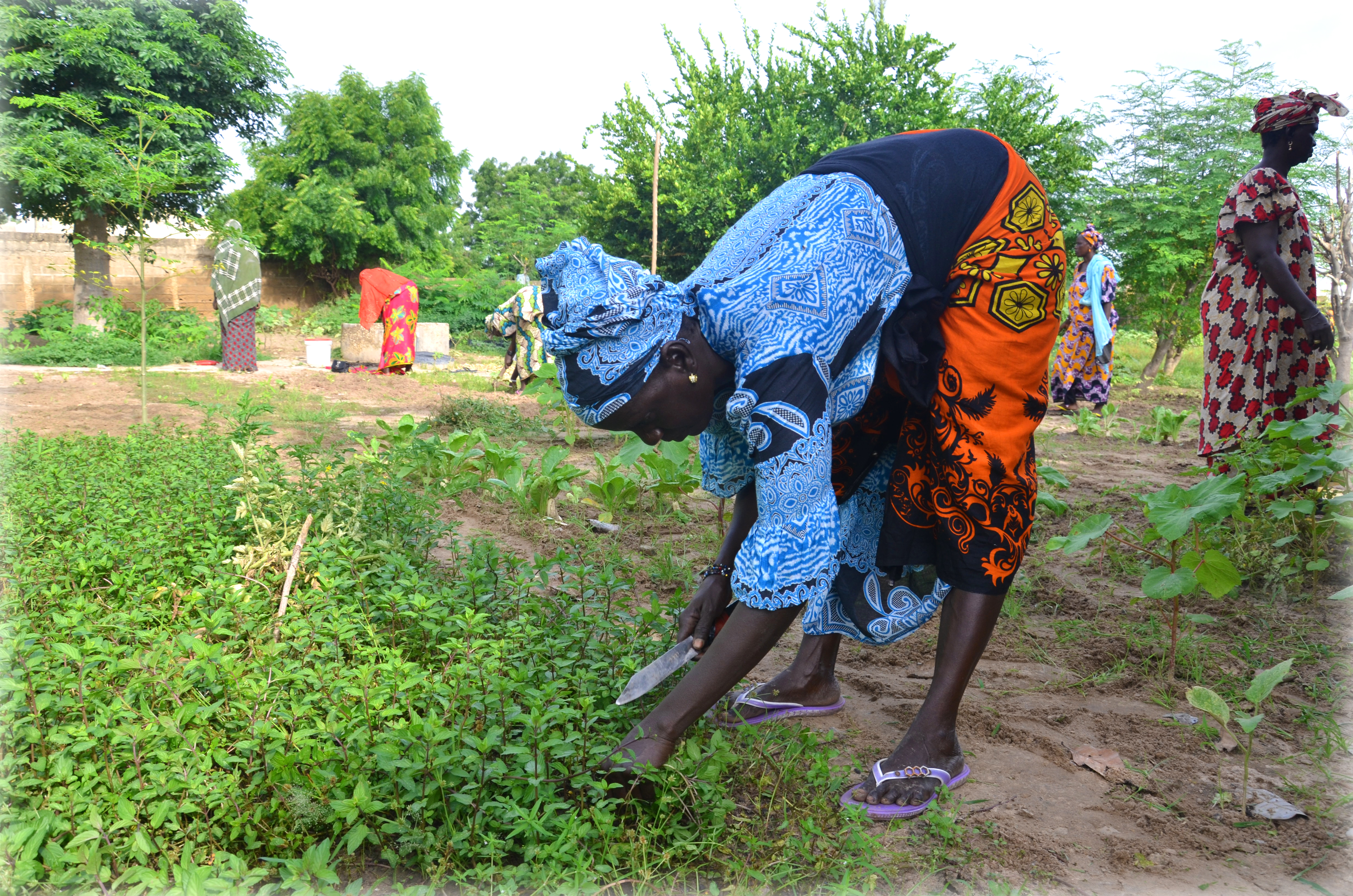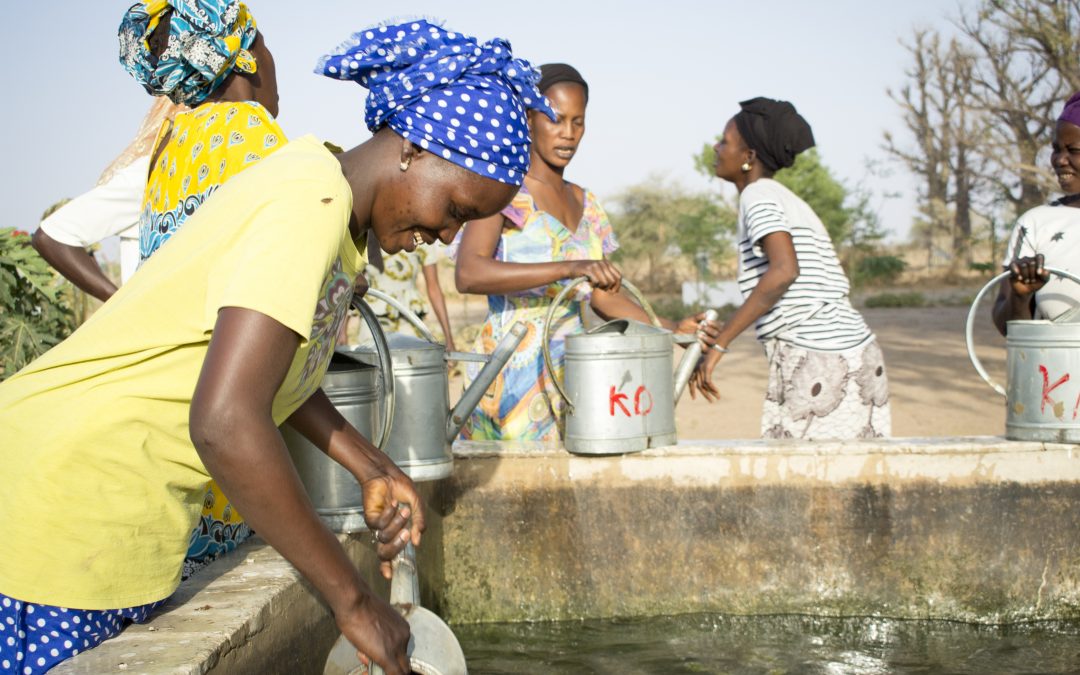Agriculture is a way of life in rural Senegalese communities. Since farmers depend on agriculture for their income and water to grow their crops, water becomes the source a sustainable future in Senegal. This is the driving force of our sustainable water projects. Around 80% of households rely on field crops and livestock to earn an income, and 75% of households rely on rainfall to irrigate their crops and water their cattle. Senegal’s rainy season is four months long. However, the impact of climate change has affected the amount of rainfall communities are receiving. Due to the lack of water, soils are becoming poor and unusable.
Typically, communities will grow cash crops such as peanuts, corn and millet to sell for income. Because they are focused on growing only cash crops, households will buy imported vegetables from large, expensive markets. But with the effects of climate change, traditional sources of income have become less reliable. This leads to families breaking apart to survive. Men will often leave their families and villages behind to earn money in cities or make the perilous journey to Europe. The women who stay behind in the village are often dependent on their husband’s earnings from abroad, without having resources of their own to generate an income. Occasionally, women will also leave their villages to find work.
However, the solution lies deep below the surface of the sandy soil, and in the hearts and minds of the motivated individuals determined to survive and thrive in their rural communities.

Sustainable Water Projects Create a Better Future: Meet Mame Khady Béye
“Ndank ndank” is a Wolof phrase meaning “Step by step”. This is how CREATE!’s programs work. The goal is self-sufficiency and a sustainable future, but the first step is water.
The First Step: Water
One of CREATE!’s first missions when partnering with a new community is to implement sustainable water projects. This includes rehabilitating the old well and installing a solar-powered pumping system so villages have access to clean water year-round. Meet Mame Khady Béye, a mother of five in the village of Fass Kane. Every day, Khady waters her lush garden and bountiful fruit trees with water from her village’s rehabilitated well. She also collects 20 liters of water daily for household use. Khady’s five children can depend on her to provide clean water for them every day!
The Second Step: Food Security & Health Benefits
Because of her abundant access to water and organic composting techniques taught by CREATE!’s technicians, Khady can grow all the fruits and vegetables her family needs right in her own community. Her children eat fresh vegetables every day from the community’s cooperative garden. “My family becomes healthier since I feed them with vegetables I grow myself,” Khady describes. But most importantly, she has access to clean drinking water. “I used to drink the tap salty water and it is not good for my health. But since the well-rehabilitation from CREATE! I have sweet water every day and become healthier.”
The Third Step: Improved Livelihoods
“Before CREATE! I bought vegetables in the market,” Khady recalls. She used to buy vegetables from the Kaolack market, an expensive market that she could only afford to visit on rare occasions. But now she returns to it as a profitable seller. “I grow my own vegetables for eating and selling the excess in the market” Khady says. Thanks to the abundance of water, she can sustain her garden year-round and earn a reliable income. Khady supports her family with the money that she earns and invests in the Voluntary Savings and Lending Group (VSLA). This organization is run by a group of women in Khady’s community. Together, they help each other save their income as well as make internal microloans to cover business, personal, and household costs.
The Fourth Step: A Sustainable Future
Khady is creating a sustainable future for her community and the next generation. This past rainy season, Khady and her community were able to plant and sustain multiple trees throughout their village thanks to CREATE!’s tree planting campaign. Khady says, “Trees we plant in the community will help our children in the future since we always use wood for cooking so it is better to replace what we cut.” Along with planting trees for firewood, they planted fruit trees such as papaya, cashew, mango, and more. Trees can also be used to reduce soil erosion and retain moisture, provide windbreak, shade, and aid in reducing air temperature. Simply put, trees are essential for the environment and people’s livelihoods.
Khady is an inspiration to the next generation who will continue to pursue the sustainable lifestyle. She grows her own food, protects the environment, and generates income from projects right in her village. Because of this, she doesn’t need to leave her children or her community to find work elsewhere. Khady’s children continue to grow and thrive in the lifestyle she is providing for them. She says, “I like all of CREATE!’s programs because they are all important for developing our community.”

“Nana” is the Senegalese word for mint. Here we see Khady cutting bunches of nana to sell at the market.
Graduation to Self-Sufficiency
Khady’s village has successfully graduated from CREATE!’s 5-year program to self-sufficiency. Her community utilizes the skills and knowledge taught by CREATE!’s field technicians. Step by step, they created a sustainable future for themselves and the next generation. This fall, CREATE! partnered with One Day’s Wages to provide three new partner communities in rural Senegal with access to abundant, clean water. Their first step towards a sustainable future and community self-sufficiency.
Help make the success of Khady and her village possible in more rural communities in Senegal by donating here.

